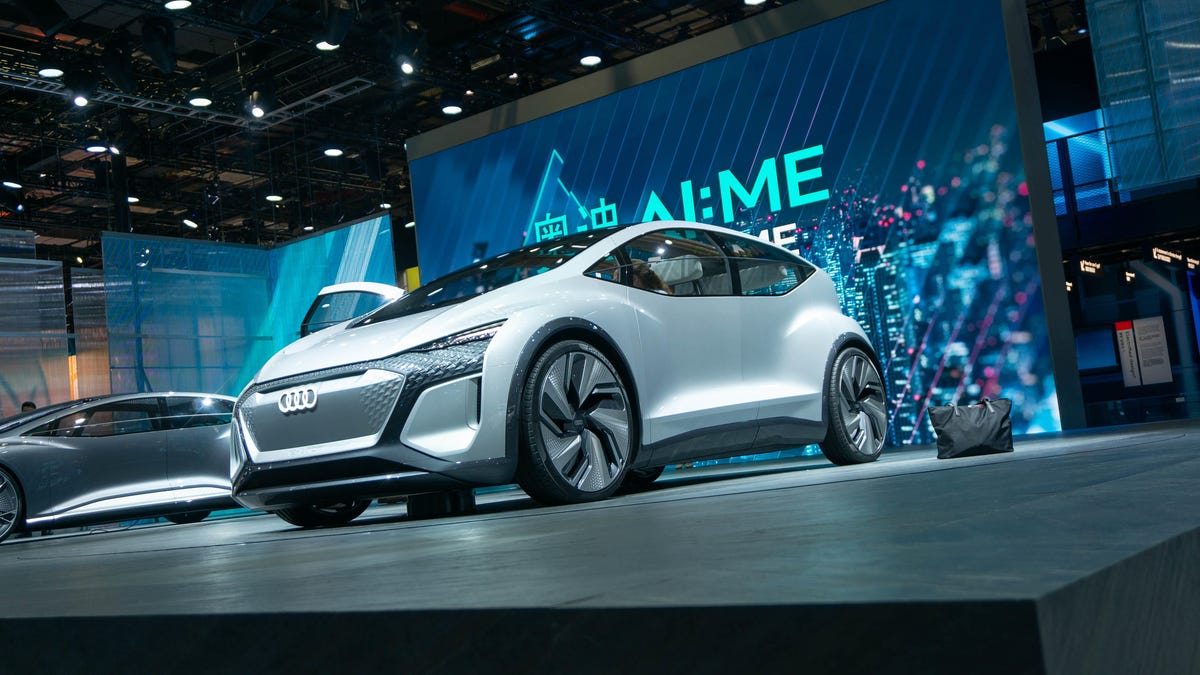J.D. Power Mobility Confidence study finds people wary of EVs, self-driving cars
Thankfully, only one of those things currently exists.
Despite all the hullabaloo about electric cars , they're still a very new technology. And, as much as we've heard about self-driving cars , they're still years (if not decades) away from feasibility. As it currently stands, though, it appears consumers aren't terribly excited about either.
J.D. Power on Tuesday unveiled select results from its first-ever Mobility Confidence Index Study. The group teamed up with SurveyMonkey to pull 5,749 consumers about the future of self-driving vehicles and 5,270 people about battery-electric vehicles.
The results of both polls were converted to a 100-point scale, and the results were... not great. J.D. Power reported a Mobility Confidence Index of just 36 for the future of self-driving vehicles, while battery-electric vehicles fared better, but not by much, with a score of 55.
When it comes to AVs, the consumers polled exhibited a very low level of confidence about these vehicles. According to J.D. Power, which does not publish the full results of its studies to the public, the greatest concerns were riding in the vehicle itself and being on a road with other drivers. Other concerns included technological failures or errors, risk of vehicle hacking and questions about crash liability.
39% of those polled said they weren't at all excited about self-driving technology, whether it was ride-hailing or even commercial delivery services. Unsurprisingly, after breaking down the responses by generation, Baby Boomers admitted to knowing the least about self-driving-car development, while Generation Z said it knew the most. That said, 66% of respondents overall said they know little or nothing about AV tech. Perceptions of safety were also split by age.
Things are a little better for EVs, but then again, they should be, since they actually exist and are available for purchase. That said, respondents said they weren't necessarily likely to buy an EV, and they had concerns about reliability and budgets compared to gas, diesel or hybrid vehicles. People do see the benefits, though, with a majority of respondents saying EVs were better for the environment, although 64% expressed concerns about infrastructure. 77% of respondents expected EVs to have a range in excess of 300 miles, while 74% said they were willing to wait no more than 30 minutes to gain 200 miles of charge.
As with many other facets of life, past experience factors into future decisions. 68% of respondents said they had no experience with EVs, even sitting in one, and only 40% of that group would consider going electric. When people with EV experience were asked if they'd buy another, 75% said yes. Money also talks -- across both groups, 78% said tax subsidies or credits would improve the likelihood of EV owners.
"Out of the box, these scores are not encouraging," said Kristin Kolodge, executive director of driver interaction and human-machine-interface research at J.D. Power, in a statement. "As automakers head down the developmental road to self-driving vehicles and greater electrification, it's important to know if consumers are on the same road -- and headed in the same direction. Manufacturers need to learn where consumers are in terms of comprehending and accepting new mobility technologies -- and what needs to be done."


